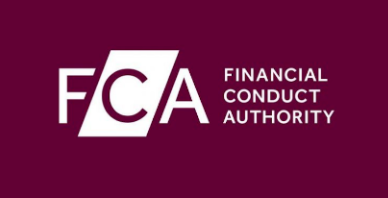The role of the FCA
The FCA recognises that it needs to adapt to keep up. As a result of the explosion in technology and consumer choice in the market, the regulator will be investing in its tech capabilities by moving to a cloud environment to be able to share intelligence more easily and scale its work. In addition, the FCA has announced an £11m digital marketing campaign on crypto currency and other high-risk products to remind young people in particular that investors in high-risk products should expect to and be robust enough to lose all their money.
Another change we expect to see is a trial to disrupt the ‘halo effect’, where firms are regulated for one activity and use this to make its unregulated activities seem more trustworthy. The trial will see firms who don’t undertake the activity for which they are regulated lose their permission. As noted, the FCA is taking a robust approach to the perimeter of its powers. It has said it will no longer turn a blind eye to consumer harms, even in places where their powers do not extend.
Consumer priorities
The FCA continues to focus on consumer outcomes and has identified its priorities as:
- Enabling customers to make effective financial decisions. It wants to see more long-term savers looking at investment opportunities, fewer consumers straying into investments beyond their risk appetite and fewer losses as a result of investment scams.
- Ensuring consumer credit markets work well, by ensuring consumers are not given credit they cannot afford and where there is default, ensuring consumers can take control at an early stage.
- Making payments safe and accessible, by retaining consumer confidence and by ensuring there is no consumer loss when firms fail. They want to address access to cash, in particular where there are branch or ATM closures, ensuring there are viable alternatives available.
- Delivering fair value in a digital age, by ensuring innovation is used to provide greater value for the consumer and fair access is given to vulnerable consumers.
- The Consumer Duty. Due to be published in July 2022, the FCA has announced a package of measures that will reform the standard of care owed by firms to consumers.
Wholesale markets
The FCA’s priorities in this area are to reinforce the effectiveness of the wholesale markets. This includes revising the listing and prospectus rules for issuance of securities in primary markets and the MiFID rules around trading of financial instruments in secondary markets. It will also be ensuring the UK markets make an orderly transition away from LIBOR.
We should expect to see increased supervision of non-bank finance, with a focus on the environmental, social and governance (ESG) attributes of asset managers’ investment products being fair, clear and not misleading. It is also looking at the consequences of continued low interest rates, which have the effect of making premium return investments more attractive. However, this can lead to consumer harm and distorted market functions so it will seek to monitor these closely. It also expects to tighten supervision of ARs to prevent any weakening of conduct standards (see our AR article for further detail).
Priorities across all markets
The fourth area of focus are trends that cross all markets. In particular, the FCA will be focusing on fraud, financial resilience, operational resilience, diversity and inclusion, ESG, international priorities, market access, equivalence and trade negotiations. For example:
- On financial resilience, the FCA wants to see appropriate capital, liquidity and reserves to cover redress liabilities and for firms to hold proportional resources to the potential harm that would be caused if they were to fail. The long-term hope is that compensation liabilities will reduce, thus reducing the amount of Financial Services Compensation Scheme payouts.
- On its international priorities, the FCA is looking to promote robust international standards, strengthened relationships with other regulators and effective supervision of cross-border firms.
- On market access, equivalence and trade negotiations, the FCA is seeking future trade relationships that support open markets. It hopes to achieve a domestic market access regime that addresses regulatory and supervisory risks from cross border access and operates effectively post EU-withdrawal.
What should we expect in 2022?
- A more robust FCA – restricting access to the register for firms who do not meet the regulatory standards and a regulator more ready to say ‘no’ at the application stage.
- More micromanaged supervision during the first 12-24 months after authorisation, as well as for firms experiencing high growth.
- Presence at the perimeter. The FCA has made it clear that where in the past it may have turned a blind eye to matters that fall beyond its regulatory scope, it is no longer prepared to do this where there is a risk of consumer harm. It will be more ready to flag legislative gaps or to engage partners where they have no powers.
- A focus on high-risk products and their volatility and potential to cause consumer harm. The FCA has highlighted fraud as a specific area of concern.
If you have any question about what this means for your business, please don’t hesitate to get in touch. You can also find the full FCA’s 2021/2022 business plan here.




